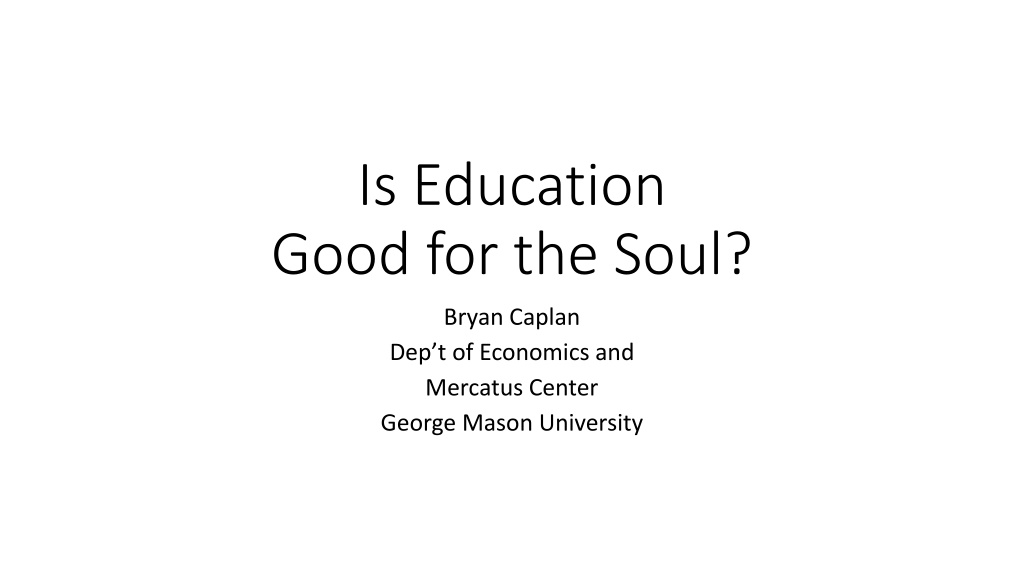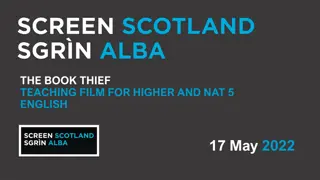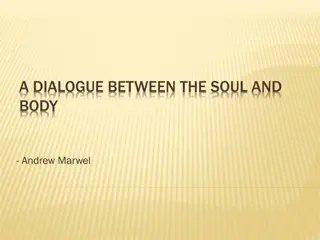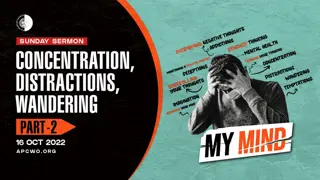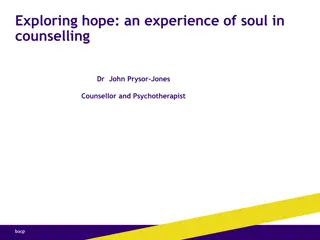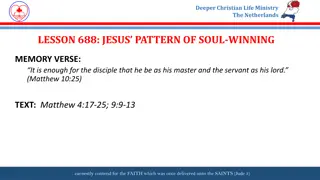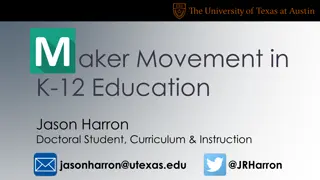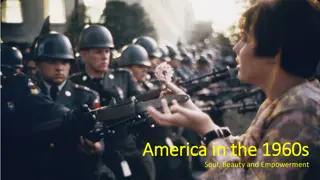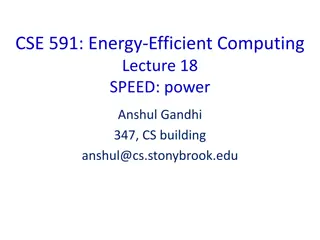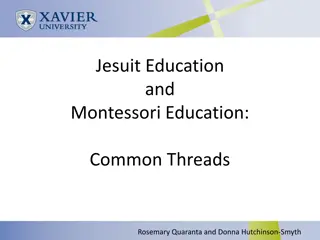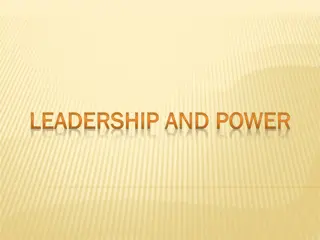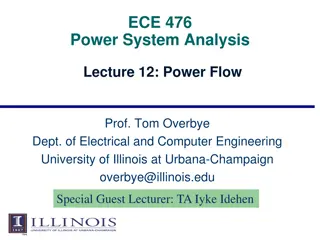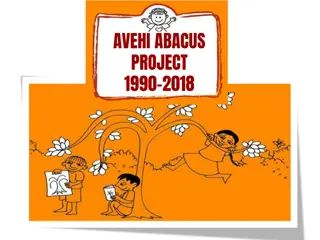The Soul-Enriching Power of Education
The discussion explores the intrinsic value of education beyond economic or social benefits, highlighting how education can shape individuals into better people. It questions the current education system's ability to meet the standards of providing valuable content, skillful pedagogy, and eager students. Additionally, it examines how education influences cultural appreciation and political viewpoints. Overall, it delves into the complexities of education's impact on individuals and society.
Download Presentation

Please find below an Image/Link to download the presentation.
The content on the website is provided AS IS for your information and personal use only. It may not be sold, licensed, or shared on other websites without obtaining consent from the author. Download presentation by click this link. If you encounter any issues during the download, it is possible that the publisher has removed the file from their server.
E N D
Presentation Transcript
Is Education Good for the Soul? Bryan Caplan Dep t of Economics and Mercatus Center George Mason University
The Humanist Critique The Case Against Education, my book-in-progress, argues that the selfish and social returns to education are much lower than they look. Humanist critique: Economists are philistines. Education isn t great because it s personally lucrative or socially beneficial. It s great because it makes us better people. Education is good for the soul. In economic terms: Education is a merit good. It s intrinsically valuable even if people don t value it. Many economists dismiss the humanist critique out of hand, but the humanist thesis makes sense me. Wagner vs. Toby Keith Hume vs. Kardashians
Meritorious Education Caveat: No sensible humanist ever thought that all education was good for the soul. My proposed three conditions for intrinsically valuable education: Worthy content Skillful pedagogy Eager students Actually existing education is poor by all three standards. Content: Remember all the busywork? Pedagogy: Remember all your boring, uninspiring teachers? Students: Look at their faces or college attendance.
High Culture Falls on Deaf Ears Intermediate position between philistine and humanist: education is good for the soul = education fosters desirable adult attitudes and behavior. As long as education molds students, it doesn t matter if they savor the process. Main change schools openly seek: fostering appreciation of high culture. Schools fail abysmally. Even if they cause 100% of consumption of classic literature and high-brow music, it s a pittance. Literature: look at all-time best-sellers. Fantasy dominates. Music: look at market share. Classical is 1.4% of U.S. sales. Point is not that only classic literature and classical music are good for the soul. Point is that there s near-zero demand for the culture schools most energetically encourage.
The Paper Tiger of Political Correctness Main change schools plausibly covertly seek/cause: making students more left-wing. Educators lean strongly to the left. K-12 teachers: 45% Democrat, 25% independent, 30% Republican 4-year professors: 50% Democrat, 39% independent, 11% Republican Conditions for political enlightenment / brainwashing are auspicious. Even a subtle slant maintained for decades could ultimately have a big effect. Data on education and political views: Education only makes students microscopically more liberal. Education makes students slightly less Democratic. Education does make students more socially liberal. But it also makes students more economically conservative!
Double-Edged Peer Effects Education correlates with many other attitudes and behaviors; most correlations are robust to obvious control variables. Voter participation (+) Religious belief (-), religious participation (+) Being marriage (+), being divorced (-) Fertility (-) Are these changes good on balance? Too big a question for an already big book. In any case: Patterns fit poorly with any prominent ideological agenda. How many teachers even want students to be Active in their church, but doctrinally moderate? Married with few kids? Simplest resolution: Peers, not teachers, are what matters. Well-educated conform to whatever s typical for the well-educated, not what teachers favor. Does it matter why education changes attitudes and behavior? Yes. Peer effects are double-edged. Segregating X s and Y s makes X s more X-like and Y- s more Y-like. Net social effect? Unclear. Application: GMU econ
The Merit Machine In any case, the internet strips the humanist critique of most of whatever plausibility it once had. The greatest content and the best teachers are now available to every eager student with an internet connection. Out of pocket cost: $0. Of course, most internet users prefer Kardashians and cat videos. But that doesn t stop minority that prizes enlightenment from enjoying an endless feast of ideas and culture. Note: If prior intellectual force-feeding really won hearts and minds, current internet use would reflect that. Book argues online education poses no serious threat to existing brick-and-mortar schools. But online education has already answered mankind s yearning for enlightenment beyond our wildest dreams. Be grateful.
